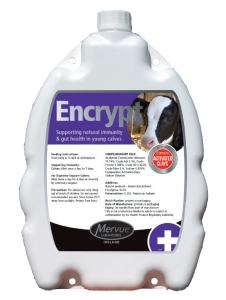Cryptosporidiosis
What is cryptosporidiosis?
Cryptosporidiosis is one of the most common causes of calf scours in the UK. It is caused by a parasite called cryptosporidium and is usually seen in young calves from 5 days of age until around 3-4 weeks of age. There are four species of the cryptosporidium parasite that infect cattle, however Cryptosporidium parvum is the most common species detected in calves less than six weeks old. With Crypto being a protozoal organism it can be hard to treat and even harder to get rid of completely compared to other common bacteria diseases which can be easier combated with antibiotics.
How calves get infected:
Calves become infected with cryptosporidium when they ingest Cryptosporidium oocytes (eggs). These oocytes can reside in the environment in bedding, pasture, soil and drinking water. Calves can shed millions of oocysts in just one gram of their faeces while as the same time it only takes a small amount of oocycts to start a new infection. Cryptosporidium is usually passed from calf to calf on farms but may also be spread by feeding equipment, work boots etc.
What it does: Cryptosporidium damages the small intestine and causes damage to the villi which lines the small intestine and is responsible for absorbing fluid and nutrients. With infection, the small intestine is not able to absorb nutritients properly and this is when diarrhoea occurs.
Signs of infection:
There are some signs to look out for in your calves such as lethargic, lack of appetite (stop drinking milk), Diarrhoea and eventually becoming dehydrated. The diarrhoea will continue for several days until the immune system has cleared the infection.

Some tips to minimize severity and spread of infection:
- Ensure calves are getting a good amount of quality colostrum shortly after birth. Test your colostrum to check the quality. Feeding quality colostrum is important to help protect from other infections such as rotavirus or coronavirus.
- Consider vaccination if you think there may be mixed infections present on farm.
- Try to avoid mixing new born calves with older calves.
- Always feed sick calves last, and use separate feeding utensils to stop contaminating the other calves.
- Ensure calves are on clean dry bedding.
- Have a good hygiene protocol in place and if calves develop diarrhoea, remove the manure thoroughly to reduce the risk of spreading disease.
- Encrypt can be fed as a preventative or in cases of diarrhoea. It can be fed orally or in milk. Encrypt contains activated clays which help to absorb up harmful toxins.
- When calves show signs of infection, remove them from the group and keep them separate.

You can view Encrypt here at https://eringoldltd.com/products/encrypt/
To find out more information on anything you have read please contact us at https://eringoldltd.com/contact/

